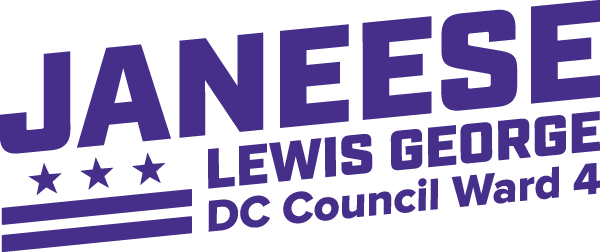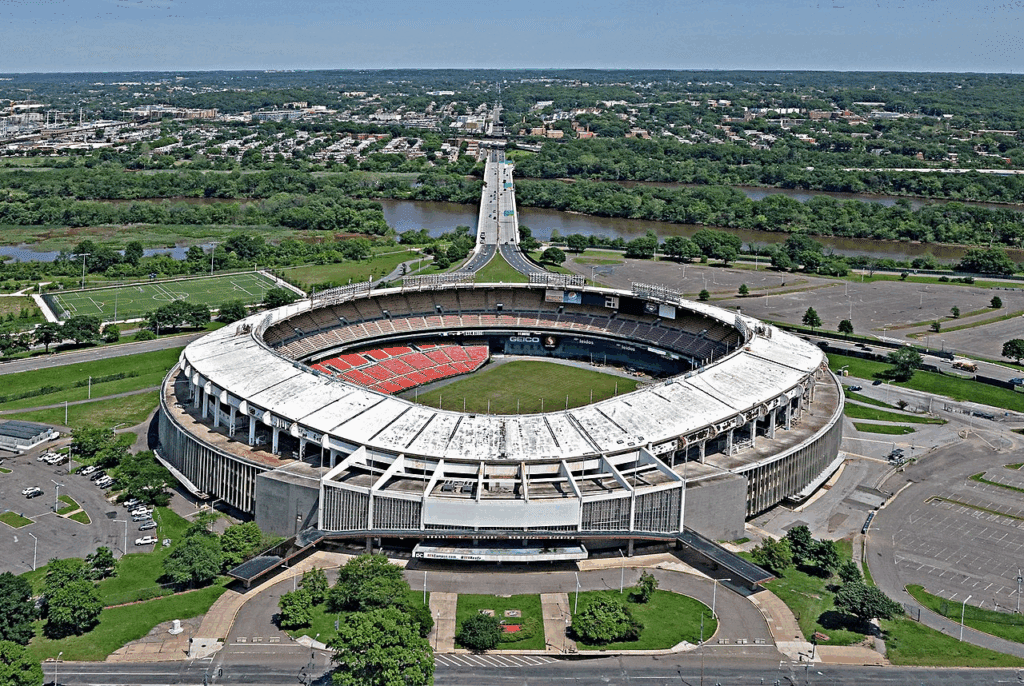As Ward 4 Councilmember, it’s important to me that the votes I make are based on objective data, steeped in community values, and responsive to the needs of our community. That’s why I’ve been eager to receive reports assessing the terms of the deal to renovate the RFK campus, including an independent financial, environmental, and operational analysis commissioned by the Council, a review by the Council’s budget office, and a report by housing and transportation expert and Greater Greater Washington board member Nick Sementelli.
This week, Chairman Mendelson announced details of a deal he reached with the Washington Commanders to redevelop the RFK Stadium site – before we’ve had a chance to hear from public witnesses at next week’s hearing on the proposed development deal. While the Mayor and Chairman seem ready to move forward with the plan as it stands right now, these reports show that real questions remain — questions we cannot afford to overlook as we weigh a deal of this magnitude and as the District makes harmful cuts to programs our residents rely on every day.
As Ward 4’s representative on the Council, the question to me remains clear: how can the opportunity that lies in front of us on the RFK campus be used to support Ward 4 and DC residents, and what benefits would a stadium redevelopment bring for our community?
What the Data Shows:
According to the Council Budget Office, a mixed-use development with a stadium could produce early economic returns for the District. However, by 2045, the alternative without a stadium would surpass the stadium plan in annual revenue, and by 2060 it would be generating $3.4 billion more for the city over the study period.
Sementelli’s report highlights another critical trade-off when it comes to housing. The stadium-focused plan would mean 5,000 fewer homes on the site — including 1,500 desperately-needed affordable units — compared to a housing-centered mixed-use development. Even when looking at revenue alone, the no-stadium option would net the District an additional $1 billion per year relative to the stadium plan. The deal also gives away far more public subsidies than other cities put on the table in recent NFL stadium deals, referring to the giveaways as “an anatomy of a bad deal.”
The deal as it stands also leaves questions about where the District would bear responsibility for stadium costs. Analysis from the Council-commissioned report shows there is still uncertainty about who would be responsible for maintaining the RFK land and stadium, and recommends placing a cap on maintenance funds supplied by the District. The report also warns of potential delays in construction that could result in a loss of tax revenue and impact our ability to use the land.
We also need to be sure District residents are getting a fair deal, not just team ownership. The Tax Abatement Financial Analysis Report from the Office of the CFO finds that the current tax subsidies offered by the District to the Commanders — amounting to $1.48 billion over the 30 year life of the lease — are not necessary for the team to operate in the District, but are simply “customary” economic incentives to lure teams to relocate.
What Changes We Need to See:
If this project is going to move forward, it must be structured to put District residents first. That means:
- A fair share of revenue: The District should receive an equal share of parking revenue on event days and a meaningful share of profits from mixed-use development on the RFK campus.
- Real accountability on housing: There must be a public, enforceable timeline for building housing on the site with penalties for missed deadlines so District residents are not shortchanged on access to affordable housing.
- Strong labor agreements: Jobs created by the development must ensure good wages, safe working conditions, and hiring practices that prioritize DC workers, both for construction and permanent stadium jobs. That means Project Labor Agreements with strong local hiring provisions for the entire project.
- Anti-displacement protections: Residents of the neighborhoods surrounding RFK should see a property tax freeze to avoid being priced out of their communities
- Environmental leadership: The development must meet strong environmental standards to ensure it is in line with the District’s climate values, including stormwater management, floodplain mitigation, energy efficiency, and conservation on par with other major stadium projects nationwide.
- Commitment on transportation planning: The District and Commanders should work with WMATA on transit incentives, up to and including free fare for those coming to the stadium via Metro on event days or a commitment from the team to bear a third of the cost by incorporating it into ticket prices.
The emotional case for moving forward with the deal as it stands is powerful — especially as our Washington Commanders’ future is brighter now than it has been in decades. But in a year when the Council is making tough choices and making painful cuts to vital programs — everything from healthcare to housing and crucial human services — we have to get our values straight. Every public dollar and policy decision must reflect our priorities. Any deal must move forward in a way that centers DC residents, reflects our values, and brings lasting community benefit.
Next week, the Council will be hearing testimony from members of the public and representatives of the Commanders franchise on the proposed development. This will be neighbors’ opportunity to make their voices heard and will serve as integral feedback as we approach the first vote on August 1st. I encourage neighbors to read up on the current deal and sign up to testify in-person or virtually by visiting the hearing page. Or if you’re unable to testify live, submit written testimony here.

